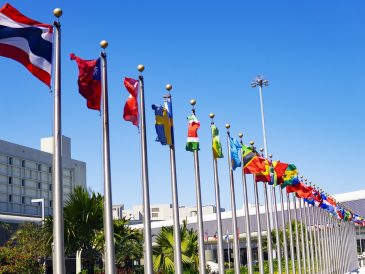Economic sanctions, which were formerly a specialized weapon in diplomatic toolkits, are now a standard tactic used by governments all over the world to affect foreign affairs. Their use has increased dramatically in recent years, igniting discussions about their efficacy, moral implications, and unforeseen consequences.
Recent Instances of Economic Sanctions
In the last ten years, financial penalties have significantly influenced international diplomacy. The sanctions imposed on North Korea, Venezuela, Iran, and Russia are notable instances. Every case has a different set of circumstances, ranging from territorial disputes and human rights violations to worries about the proliferation of nuclear weapons.
Impact on Targeted Countries
Economic sanctions have a wide-ranging and complex impact on the countries that are their targets. Sanctions, for example, have contributed to significant economic suffering, a sharp decrease in oil earnings, and currency devaluation in Iran. Similar to this, sanctions have hurt Russia’s economy, especially in important areas like banking and energy. Sanctions have made North Korea’s economic problems worse by making food shortages worse and hindering development initiatives. Sanctions have also affected Venezuela, making an already serious humanitarian catastrophe worse.
Global Economic Implications
Economic sanctions have repercussions that reach far beyond the boundaries of the nations they target and affect the entire world economy. A few examples of these repercussions are increased market volatility, changes in commodity prices, and disruptions in trade flows. Global consumers, investors, and businesses must negotiate an unpredictable economic environment full of unpredictability in terms of policy and geopolitical unrest.
Diplomatic Ramifications
Diplomatic relations between sanctioning entities and impacted nations are strained behind the scenes because of economic sanctions. The implementation of sanctions may cause animosity between allies and sever ties in established alliances. Due to vested interests and geopolitical rivalry, attempts to defuse tensions through diplomatic channels frequently encounter obstacles.
In Conclusion
As economic sanctions continue to feature prominently in international relations, policymakers, diplomats, and analysts alike are grappling with their implications. While sanctions may serve as a powerful tool for exerting pressure and achieving policy objectives, their indiscriminate impact on civilian populations and broader economic stability underscores the need for careful consideration and nuanced diplomacy. Looking ahead, the challenge lies in striking a balance between leveraging economic sanctions as a diplomatic instrument and safeguarding against their unintended consequences.





